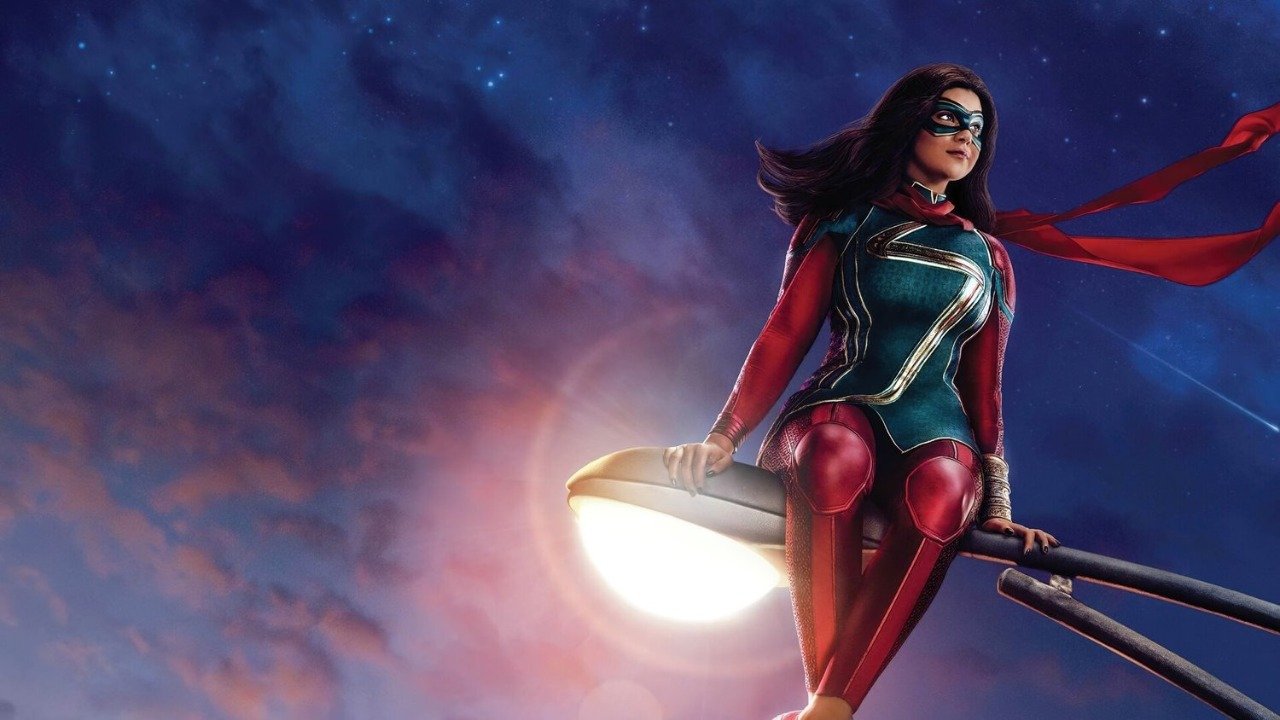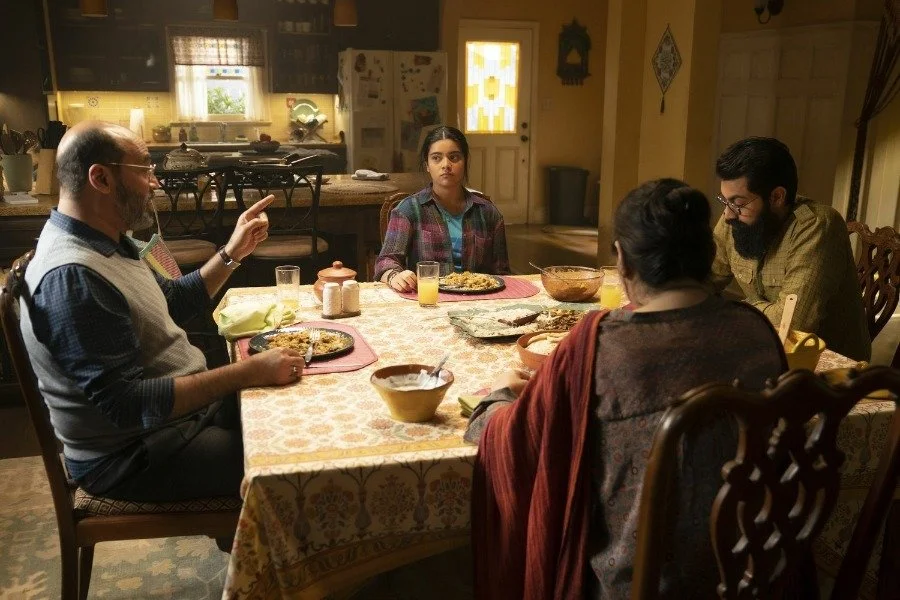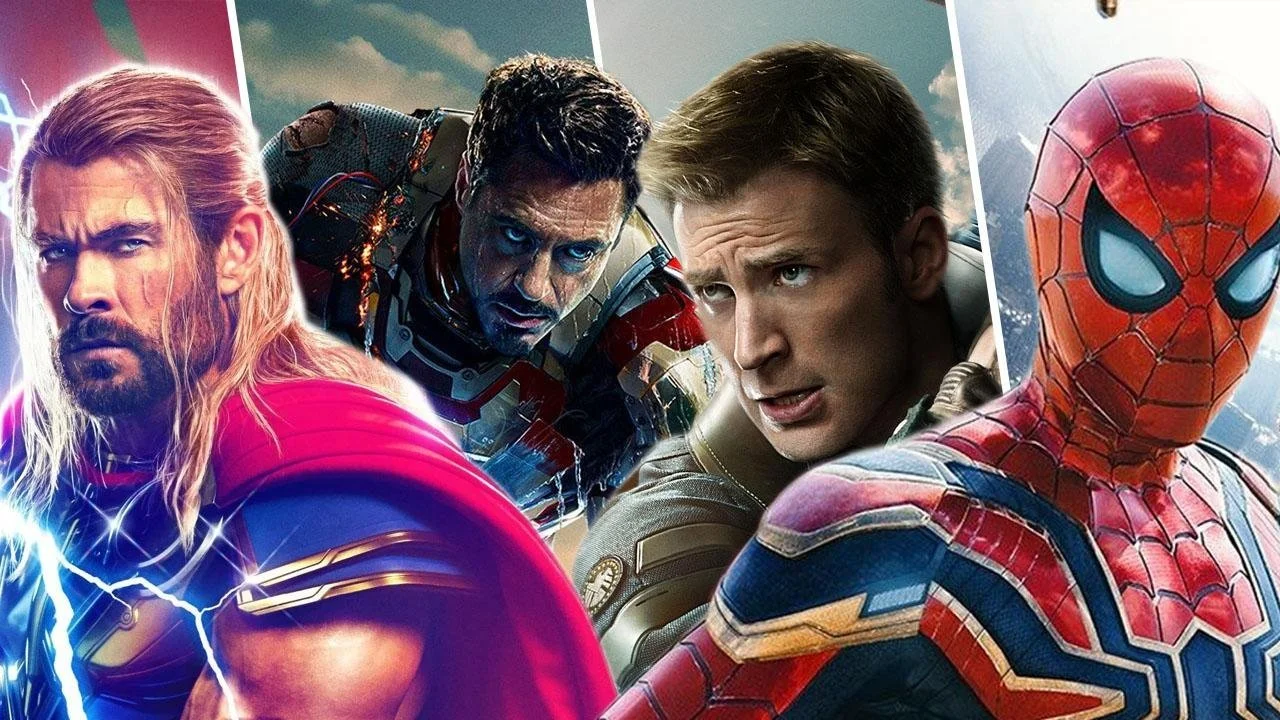A South Asian Perspective About ‘Ms. Marvel’
As I watch the fifth episode of the new Disney+ series, Ms. Marvel begin with the very old but very popular Bollywood (Indian film industry) song, ‘Tu mera chand mein teri chandni,’ playing in the background as the Marvel logo takes shape, I was filled with a deep sense of familiarity. This was a song that I, my parents, and even my grandparents had grown up listening to. Finally, there was something in the Marvel Cinematic Universe (MCU), a universe where I would rather live, that I could share with my family and that they would understand.
Ms. Marvel, created by Bisha K. Ali, is the origin and coming-of-age story of the Pakistani-American teenager Kamala Khan (played by Iman Vellani). As a young girl growing up in a conservative South Asian family in New Jersey, she has to put up as good a fight against her family as she has to against the Clan Destines (the powerful beings from another world whose return to their own world threatens the destruction our world). But, of course, her family eventually comes around, and they form a deeper bond than before.
RELATED:
As Kamala’s mother, Muneeba (played by Zenobia Shroff), confessed her fear of letting her daughter go, she spoke for the majority of South Asian parents. In Muneeba’s portrayal, I could feel the love and protection of my own mother. In the way Kamala bargained around the restrictions that Muneeba put on her, trying to find a middle ground to do what she wished while having her parents’ approval, I could recognise the everyday struggles of a South Asian woman teen that I have lived through myself.
The scene where Kamala proudly puts on the costume of Captain Marvel that she has lovingly made for attending the Avergercon and looks at herself in the mirror only to be swarmed with doubts about the appropriateness of her attire was all too familiar. Having been brought up in a place where the society gets to decide to a large extent how women should conduct themselves, finding their voice and creating an identity in which they get to be themselves is often a challenge for many South Asian women.
Ms. Marvel dealt with Kamala’s and, to a great extent, Muneeba’s struggle beautifully as the two settled on a costume that was true to Kamala’s individuality. And when Kamala donned that spandex salwar-kameez with a cape-ish duppata, she inspired many South Asian women who, just like Kamala, once thought that “it’s not really the brown girls who save the world.”
The various references to Bollywood movies and actors (Shah Rukh Khan is everyone’s favourite here) made me part of the conversation. The soundtrack, comprised of music by Indian and Pakistani singers and composers, made me groove along. The frequent splashes of Hindi conversations made me feel at home. These are movies I have watched, faces I have seen, and music that is a part of the fabric of my routine.
There were many other details, big and small, like Rumi’s quote, “what you seek is seeking you,” the tradition of stealing the groom’s shoes during the wedding, and the aunties’ incredulity when a woman went backpacking across Europe, that I could relate to. Though it is nice to watch cultures from all over the world on screen, watching fragments of a culture that I am familiar with was incredibly refreshing.
Kamala Khan as Ms. Marvel is a superhero that I would have loved to have known while growing up, and I am glad that South Asian teenagers now are getting to watch her and relate to her. Ms. Marvel will be back on the big screen with her hero, Captain Marvel, in 2023 in the movie, The Marvels.
READ NEXT:






